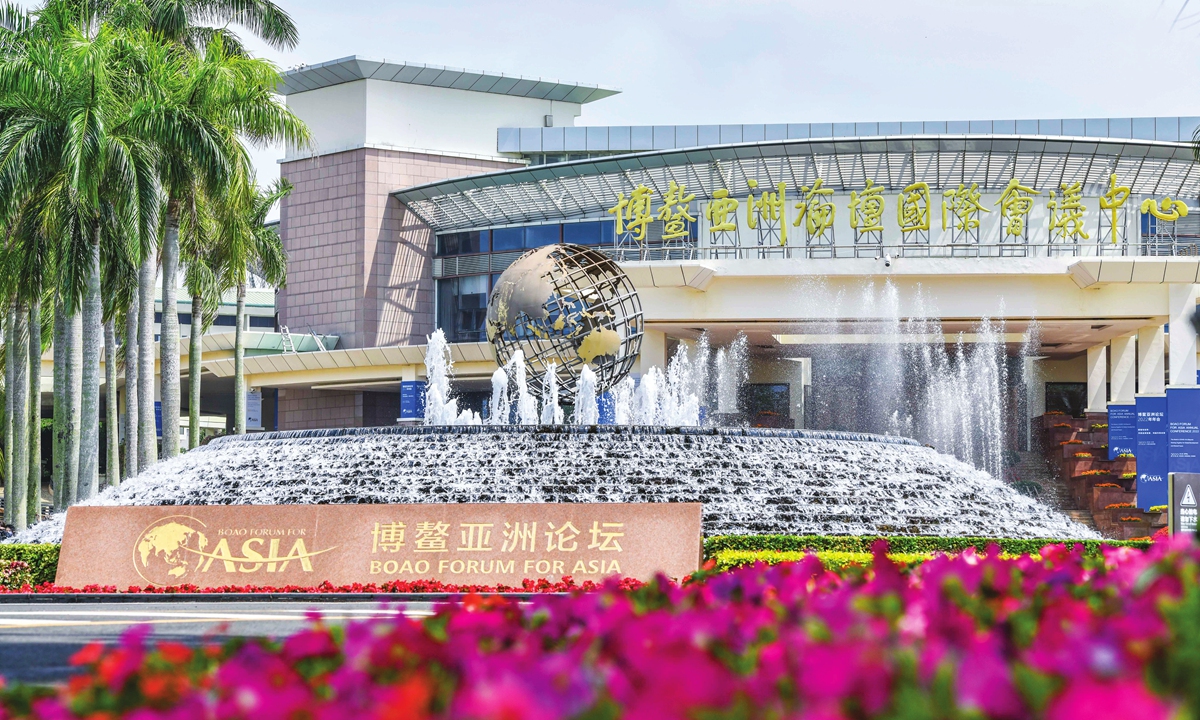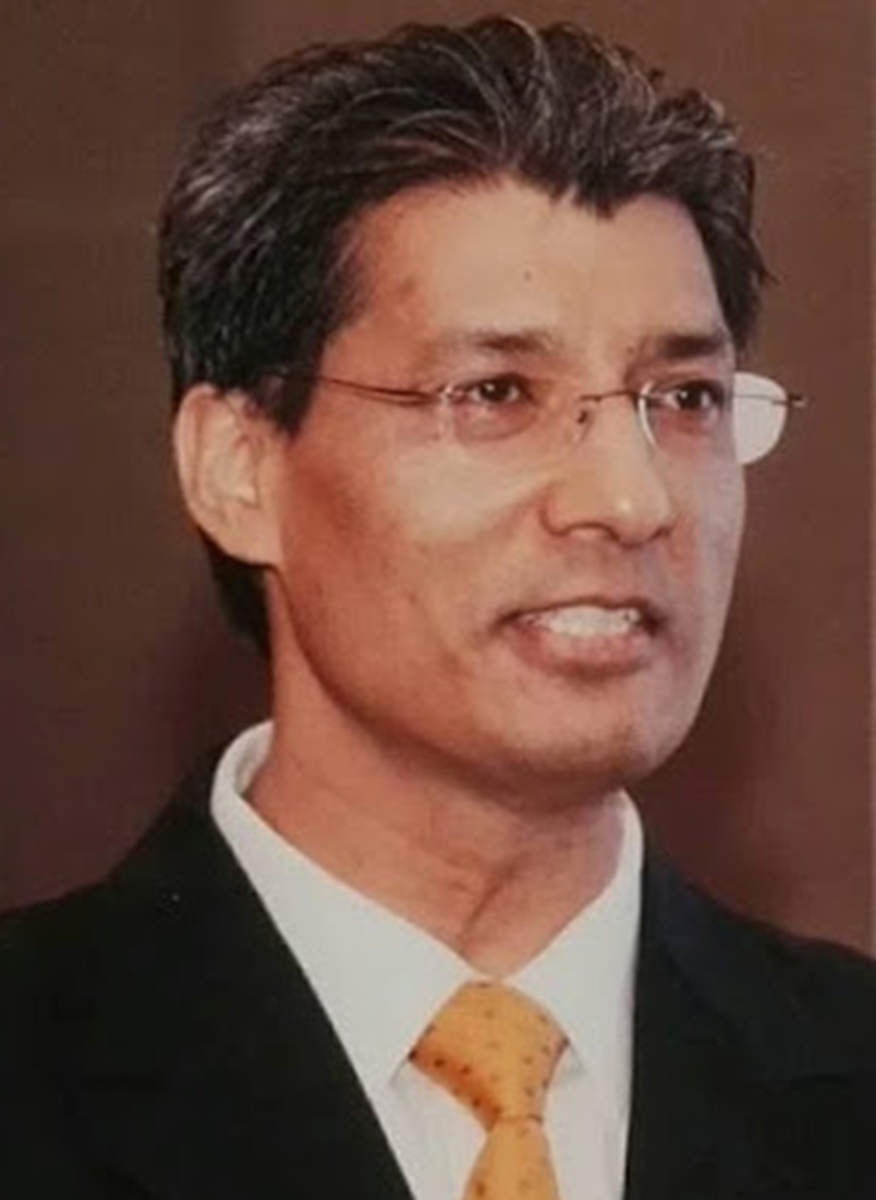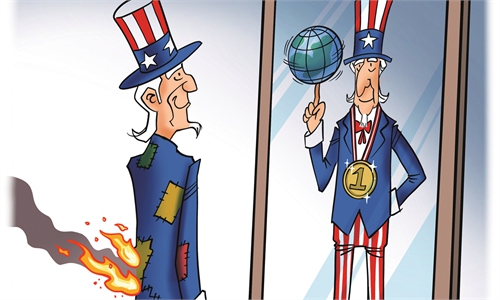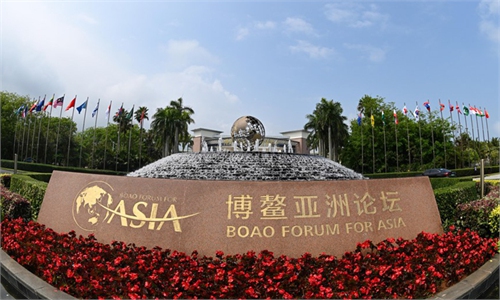True multilateralism an antidote to selective, small-circle multilateralism: Indian scholar

Photo: VCG
Editor's Note:For the Chinese people, the past decade was epic and inspirational. The country, under the leadership of President Xi Jinping, has made great endeavors in boosting its economy, deepening reforms, improving the rights of its people and acting as a responsible power globally.
The Chinese leader has stressed "true multilateralism" on several occasions, the most recent at the opening ceremony of the Boao Forum for Asia Annual Conference 2022 on Thursday. Global Times (GT) reporter Wang Wenwen talked to B R Deepak (Deepak), a Sinologist and chairperson of the Centre for Chinese and Southeast Asian Studies at Jawaharlal Nehru University, on his understanding of multilateralism that China is promoting. This is the second of the series.
GT: What China's diplomatic philosophy does "true multilateralism" reflect? What's the difference between "true multilateralism" and the values-oriented blocks advocated by the West?
Deepak: True multilateralism can have different interpretation. Nonetheless, from China's perspective, I think it is mutually inclusive and beneficial and devoid of any trade, investments and technology barriers. The one that promotes common development and decries protectionism and narrow nationalism. The one that adheres to international system and law. Here again, the issue may be raised whether that international system is just or not, whether the international law is abided by the powerful countries or not, whether the very system is considered just should not be hijacked by a few.
Therefore, I believe true multilateralism is an antidote to selective, unilateral or small circle multilateralism. This kind of multilateralism must reflect equitable and just representation of countries in the global governing system, which at this point I believe is highly disproportionate. It's based on "us" versus "them" or "our values" versus "their values" or "our world" versus "their world," therefore making the institutions of multilateralism serve a few and powerful ones. And those who challenge this paradigm are subjected to abuse and assault.
GT: From the perspective of the US, the core of the multilateral system bound by "rules" is still the community of the so-called democratic countries in the West. Will this make non-Western countries less willing to follow the US?
Deepak: Undoubtedly, the present international order is based on the Westphalian sovereignty that is also enshrined in the UN charter, and the Bretton Woods institutions of global governance, established primarily by the West in the wake of the Second World War. Though most countries adhere to these institutions, but did the powerful respect sovereignty of weaker countries? Did they respect different development paths, systems or ideologies of other countries? As regards to non-Western countries drifting away from the US and its allies, I think it will require some time, for we know that the 20th century was completely dominated by the "American Dream" paradigm. And to be fair, it had its attractiveness.
However, of late the "American dream," as that space has opened to many other emerging economies, and moreover, the United States' relentless meddling in others' internal affairs, and the lack of capacity to deal with its domestic challenges, has increasingly been questioned. Countries may look the other way in coming years.

B R Deepak Photo: Courtesy of Deepak
GT: Many developing countries, including India, haven't sided with the US on the Ukraine crisis. Some believe that in today's multipolar and politically diverse world, this shows the dissatisfaction of most countries with the "pseudo-multilateralism" promoted by the US. What do you think?Deepak: I believe each country makes its foreign policy choices on the basis of its national interests. And India, along with many other countries, has demonstrated this during the ongoing Ukraine crisis. India may not have stood by the West during this crisis, but she is very much the part of other multilateral mechanisms. Forget India, even EU countries, which have denounced Russia's actions in Ukraine, are still buying Russian oil and gas. Therefore, there is visible dissatisfaction among various countries against the US and the eastward expansion of NATO. I think national interests are ultimate, I would argue.
As far as pseudo-multilateral of the United States is concerned, I think it is, again, demonstrating what the United States would like others to do in order to fulfill its national interests, and that's why it is behaving the way it has been throughout its history.
GT: Biden has framed the US return to multilateralism as a foreign policy for the American middle class, linked to the concrete interests of the American people. China's multilateralism, on the other hand, focuses on regional and global development. How do you see their different visions?
Deepak: The US decision to return to multilateralism is in response to emergence of other countries that have been taking keen interest in multilateralism.
Secondly, it is also meant to do some damage control exercise to what the Trump administration has done to multilateral institutions by pulling out of them. I would say China has been in the mind of the United States. For example, a few years back, the United States used to be the world's largest trading and investment country. But since 2013, this place has been lost to China. China taking initiatives to set up the Shanghai Cooperation Organization, BRICS, AIIB and taking membership in various other trading blocs has awakened the United States to the reality that the 21st century is a very different world. It is owing to this that the United States has initiated a Build Back Better World and the Indo-Pacific Business Forum for promoting the so-called "open interconnected, resilient and secured Indo-Pacific, primarily a response to China's Belt and Road Initiative, I would say.
China's engagement in multilateral organizations, including with nations and various other organs of UN, aims to promote common development, common prosperity, and to some extent common security, so as to build economic communities or security communities in the regions, whereas the United States is trying to sustain its global hegemony.
GT: Multilateralism is the key to addressing global challenges. In the context of the COVID-19 pandemic, what is preventing multilateralism from working?
Deepak: Indeed, COVID-19 has presented the world with opportunities to collaborate in research and development. Vaccine production is one of these areas. In this direction, BRICS countries announcing a joint research and development center for vaccine development, is a welcome step. However, whether vaccines produced for RNA based viruses have proven efficacious or not is still being debated, though it is my personal view. Secondly, I think since India, China and Russia have developed their own vaccines and have been competing in the international market. It is also a welcome step that they have been donating vaccines to the world community as a global public good. India and China alone have donated almost 1 billion doses of vaccines to the world.
Notwithstanding their cooperation, there are some pertinent issues that have been inadequately addressed by the member states. And vaccine nationalism, protectionism, decoupling and disruptions in the supply chain could be cited as other examples.
GT: As multilateralism faces the backwardness of global governance mechanism and some countries' confidence in multilateral cooperation weakens, how can the multilateralism promoted by China inject confidence into global governance?
Deepak: I think it will depend on China's economic resilience and her confidence to share greater global responsibilities. Because as of now, we have seen that China's economic growth has been robust even through the pandemic years. This is important as we have seen slump in global economic growth and many countries have registered negative growth. It will also depend on whether she is capable of pushing reforms of the dwindling global institutions, and whether she is able to improve or perfect the system of global governance, and resolve her complex issues with neighbors through peaceful negotiations or not.
I think if the answer is yes, the world may look toward China to find solutions to the complex issues and engage with China on the question of true multilateralism. I hope China makes informed choices so as countries will lean toward China rather than move away from China.



